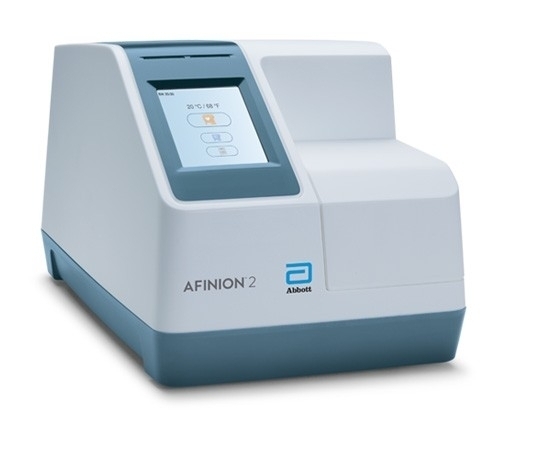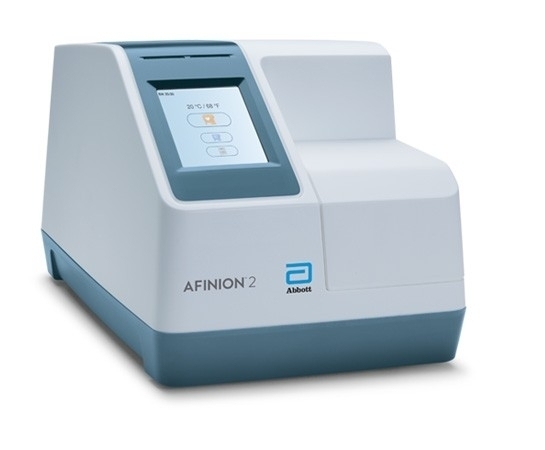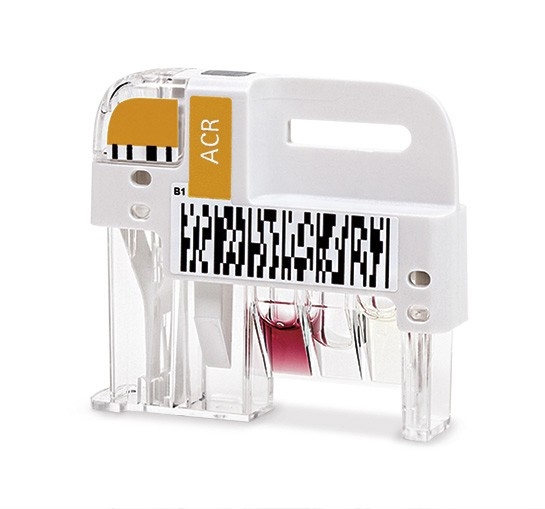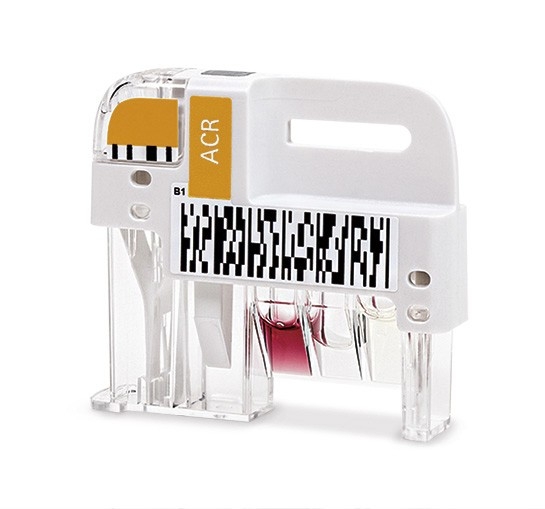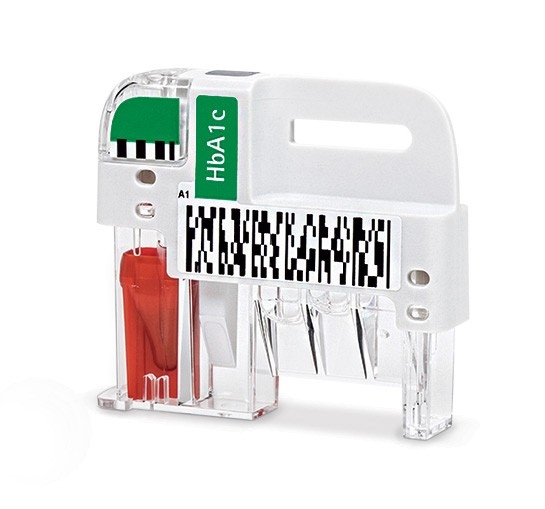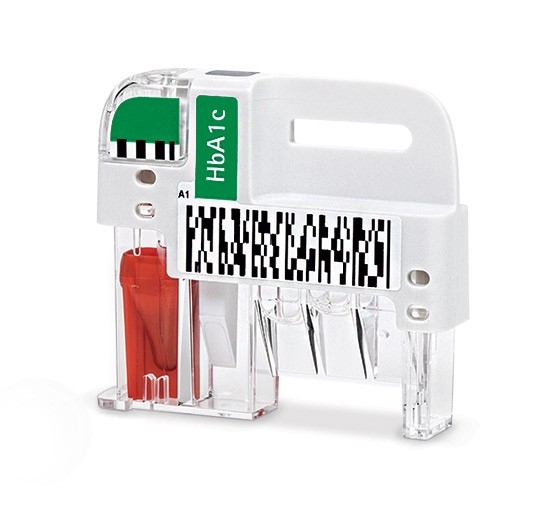Global point of care
DETECT iN TIME, PROTECT KIDNEY HEALTH
This year's World Kidney Day emphasizes the importance of early testing and preventive interventions that can avert the onset and progression of kidney disease. Chronic kidney disease (CKD) is estimated to affect approximately 850 million people worldwide.1
If left undetected and not treated in a timely manner, CKD can progress to kidney failure, leading to severe complications and premature mortality. CKD is also a critical component of cardiorenal metabolic diseases, including cardiovascular disease and metabolic disorders.2 Updated guidelines recommend broader testing: patients with diabetes, hypertension, or cardiovascular risk factors should be assessed at least annually.3
Kidney disease can be prevented and progression to end-stage kidney disease can be delayed with appropriate access to basic diagnostics and early treatment. With point-of-care testing, primary healthcare providers can do just that – in minutes.
At-risk populations for kidney disease should undergo targeted testing.
Recent therapeutic breakthroughs offer new opportunities to prevent or delay kidney disease and mitigate complications such as cardiovascular disease and kidney failure.1 But you can only treat what you know about. Thus early detection is key.
KDIGO and the International Society of Nephrology (ISN) call for screening of patients with kidney disease risk factors like high blood pressure, diabetes, cardiovascular disease, and a family history of kidney disease, as early treatment can reduce morbidity and mortality rates.2 The American Diabetes Association (ADA) recommends annual screening of people with diabetes for kidney disease.4
Kidney disease screening and risk stratification should consist of a dual assessment of estimated glomerular filtration rate (eGFR) and albuminuria (uACR).2
Identifying renal disease early – and monitoring it consistently – can make all the difference.
ACR: THE WINDOW TO EARLY KIDNEY DISEASE
This webinar emphasizes the importance of early detection in managing chronic kidney disease (CKD), which affects one in ten adults. Experts discuss the role of the albumin-creatinine ratio (ACR) assay in early detection, especially in diabetes. Monitoring and treating ACR can prevent significant loss of kidney function.
1 in 10
adults likely have CKD. Of those, 2 out of 3 have not been diagnosed.5
40%
of those diagnosed with diabetes are expected to develop kidney disease.4
90%
of kidney function can be lost before symptoms are experienced.6


1 in 10
adults likely have CKD. Of those, 2 out of 3 have not been diagnosed.5
40%
of those diagnosed with diabetes are expected to develop kidney disease.4
90%
of kidney function can be lost before symptoms are experienced.6


RAPID DIAGNOSTICS CAN HELP WITH EARLY KIDNEY DISEASE DETECTION
Rapid point-of-care testing such as Afinion™ ACR assay enable healthcare providers to detect and manage the onset of kidney conditions. The earliest sign of kidney disease is increased excretion of albumin in urine (albuminuria).4 ACR is the recommended method by KDIGO,2 ISN6 and ADA4 to determine albuminuria. The KDIGO CKD guidelines3 highlight the advantages of using point-of-care testing for creatinine and urine albumin measurement (Recommendation 1.4.1).
By combining immediate treatment with the necessary lifestyle changes - such as maintaining blood glucose, blood pressure and cholesterol levels - many people with diabetes are able to delay the onset of kidney disease complications – or prevent them altogether.2
Related Products
Afinion™ 2 System
Immediate results mean immediate advice.
People with diabetes and hypertension are at a significantly higher risk of developing kidney damage.7 Identifying and monitoring renal disease in patients with diabetes and hypertension can make all the difference — and Abbott makes it fast and easy with a compact rapid, multi-assay analyzer that provides valuable near patient testing at the point-of-care.
Afinion™ ACR
Accurate results in approximately 5 minutes.
Part of a multi-assay system, Afinion™ ACR is an in vitro diagnostic test for the quantitative determination of albumin, creatinine and albumin-creatinine ratio in human urine. This test is used with patients who have chronic conditions, such as diabetes and hypertension, to detect kidney disease at an early stage.
Afinion™ HbA1c
Short assay time in approximately 3 minutes.
Afinion™ HbA1c gives you reliable high-quality results conveniently available when and where you need them. This test is used for quantitative determination of glycated hemoglobin (HbA1c) in human whole blood, used to monitor metabolic control in patients with diabetes. It also provides the immediate test results you need for improved diabetic control, better patient outcomes, and enhanced clinic efficiencies.
References
- Francis, A., Harhay, M.N., Ong, A.C.M. et al. Chronic kidney disease and the global public health agenda: an international consensus. Nat Rev Nephrol 20, 473–485 (2024). https://doi.org/10.1038/s41581-024-00820-6
- Marassi, M., & Fadini, G. P. (2023). The cardio-renal-metabolic connection: A review of the evidence. Cardiovascular Diabetology, 22(1), Article 195. https://doi.org/10.1186/s12933-023-01937-x[1](https://cardiab.biomedcentral.com/articles/10.1186/s12933-023-01937-x)
- KDIGO CKD Work Group. KDIGO 2024 clinical practice guideline for the evaluation and management of chronic kidney disease. Kidney Int. 2024;105(4S):S117-S314. doi:10.1016/j.kint.2023.10.018. https://www.kidney-international.org/article/ S0085-2538(23)00766-4/fulltext
- American Diabetes Association. Standards of medical care in diabetes – 2025. Diabetes Care 2025.
- Sundström J, Bodegard J, Bollmann A et al. CaReMe CKD study: Prevalence, outcomes, and cost of CKD in a contemporary population of 2.4 million patients from 11 countries. The Lancet Regional Health – Europe 2022;00: 100438
- The International Society of Nephrology (ISN). Chronic Kidney Disease: https://www.worldkidneyday.org/about-kidney-health/. Accessed 21 12 February 2025.
- National Institute of Diabetes and Digestive and Kidney Diseases. (n.d.). High Blood Pressure & Kidney Disease. https://www.niddk.nih.gov/health-information/kidney-disease/high-blood-pressure




